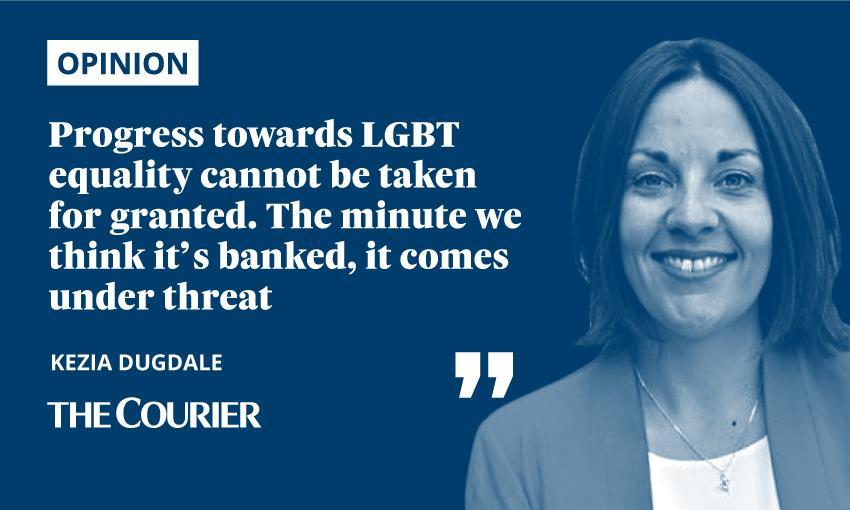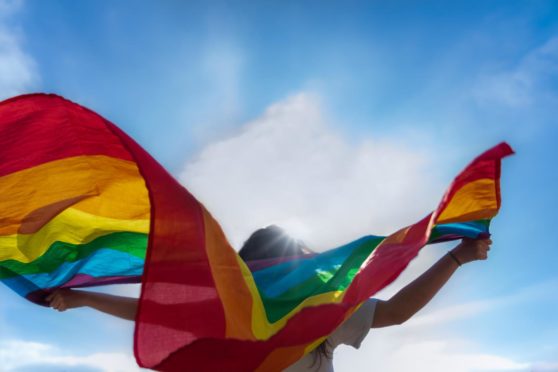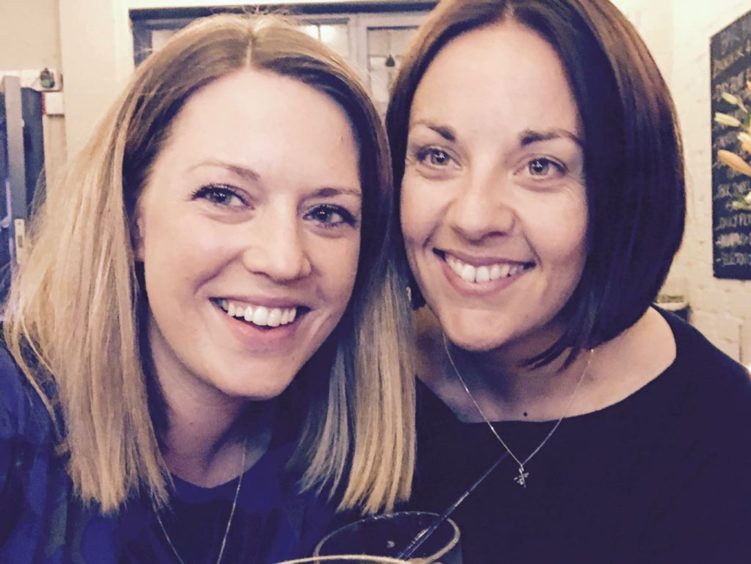Like most people, I’ve watched an awful lot of television since my daily commute was reduced to walking the 30ft from the small screen in the spare room to the big screen in the living room.
I’ve pounded through drama and comedy box sets, dabbled with the soaps again and tuned in to Gardener’s world with a religious fervour that leaves my partner utterly baffled.
The best programme I watched during the pandemic is also the best I can ever remember.
Channel 4’s drama It’s a Sin about the lives of a group of friends in London as the HIV/AIDS pandemic rampaged left me in pieces.

It starts in 1981, the year I was born and the year homosexuality would be decriminalised in Scotland
I laughed and I cried. Oh boy did I cry. It stimulated huge conversations and story telling among my group of friends.
It provoked thought, emotion and prejudice. It did everything we expect art to do.
It also survived as a stark reminder of the progress that the LGBT community have made.
In the 1980s, the hope and expectation was that the community would be tolerated rather than feared.
By the 2000s, the ambition had risen to being accepted, with major pieces of legislation like the Civil Partnerships act and the end to the ban on gays serving in the military.
In the 2020s, the goal is inclusion. For LGBT people to be free to be themselves and to live life to the full.
That’s the guiding mission of organisations such as Stonewall, which now finds itself under a level of co-ordinated attack not seen since Frankie said relax.
Caught in a culture war
As pride month gets under way it’s a reminder that progress towards LGBT equality cannot be taken for granted. That the minute we think it’s banked, it comes under threat.
And the current culture war on woke provides the perfect feeding ground.
For years Stonewall has operated a scheme called Diversity Champions, which encourages employers to be fully inclusive of LGBT people.
With more than 800 companies and major employers signed up, you can be pretty sure that at least one organisation you shop with, bank with or work for is a diversity champion and all the better for it.
If the government of the day is prepared to tell major co-operations not to bother with that diversity thing, what else is up for grabs?
However, in the past week, the UK Equalities Minister has actively encouraged organisations to stop being official “Diversity Champions”.
Why? Because of Stonewall’s stance on the rights of transgendered people. Which is basically that they should have the right to be free to be themselves just like the rest of us.
If the government of the day is prepared to tell major co-operations not to bother with that diversity thing, what else is up for grabs?
You might think that’s a bit of a leap, but take a look at the reluctance of the UK Government to ban conversion therapy.
That’s the unethical practice of attempting to cure people for being gay.
The evidence of the trauma and harm that therapy does to its recipients is compelling, yet the plans to have it banned have been glacial in their pace, leading to three government advisors quitting in recent months.
The LGBT movement needs allies now more than ever… If your gay friends look tired of defending their progress, do it for them
The suffragettes cry was deeds not words. The Black Lives Matters movement demands not just that we condemn racism but that we are anti-racist.
It’s an expectation that we take action rather than be bystanders to other people’s pain and disadvantage.
The LGBT movement now needs allies now more than ever. For every corporate rainbow cup there has to be a renewed commitment to equality in action.
If your gay friends look tired of defending their progress, do it for them.
Some reality with your cupcake?
June signals the start of Pride month, with marches taking place all over the country.
In recent years they’ve become celebrations of joy but for me and for most, they’ve always been political: annual markings of that journey from tolerance to acceptance to inclusion.
Covid will likely turn Pride parades into picnics this year, but every bite of a rainbow cupcake needs to be accompanied with a sip of reality.
I’ve got a feeling this is going to be a particularly political pride month. Yes, let’s celebrate, but our progress feels particularly fragile at the moment and it’s still denied to so many around the world. 💪🏼🌈
— Kezia Dugdale (@kezdugdale) June 1, 2021
There are still dozens of countries in the world where it’s still illegal to be gay, dozens more where you can’t get married or have a family.
Hate crime is on the rise in the UK and the one of the biggest causes of youth homelessness is a negative reaction a parent has to their child coming out.
It’s clear that in the battle for equality, you can’t stand still. If you’re not going forwards, you’re at real risk of going backwards.

